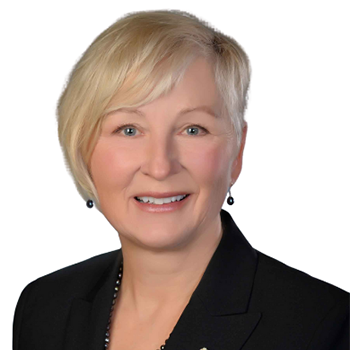Education – The Elephant in the Room
As an MLA, I have promised to put People over Politics. I have made it my mission to find out what people are concerned about and what their ideas are to provide solutions.
Recently, Education issues have increasingly become a topic of great concern to parents, teachers, and other professionals recently. In my 16 years as an MLA, I have never seen this level of alarmism, from all political sides, about student outcomes.
Employers and post-secondaries tell me that when new high school graduates apply, they must be assisted with elementary level reading, writing and math. Parents tell me that they feel alienated from the school system and are worried about their children’s progress and sometimes their safety. Teachers tell me they don’t have the resources to educate for success in today’s complex classrooms.
Without disclosing specifics, I will provide a few examples.
- Parents in Saskatchewan Rivers petitioned school officials for a meeting to discuss school incidents that had harmed a number of students. Over 100 parents attended. They were not allowed to speak about the incidents due to privacy rules. At the end of the meeting neither the school officials or RCMP could assure those parents that their children would be safer going forward. At least one family pulled their children from that school to be educated elsewhere, “because nothing was done and nothing changed.”
- In another school, a student who had been put into alternate education, was often directed to sit by herself with a chromebook during class. Her instructor told her parents that she would never be more than a shelf stocker, never a cashier. When the Saskatchewan government closed schools for covid, her parents decided not to waste the time and began homeschooling. Today, this young lady has achieved Grade 11 Algebra and much more.
- A single mother discovered that despite her two children moving into junior high school, neither could read, write or do math at even grade one levels. She spent over $12,000 on private tutoring in 2023 to bring them up to grade four, still years behind the outcomes that she should rightfully expect from our public education system.
So how can this happen when we have an army of talented educators whose passion is to mentor every child to succeed to their potential?
The answer lies mostly in the phrase ‘classroom complexity’, a politically correct way of saying that today’s classrooms host a multitude of dynamics the education system was never set up to handle.
It’s the Elephant in the Room.
It began with the noblest of intention; new policies to integrate students with special needs into public school classrooms with their age groups. Education Assistants were brought in to meet the change. In most cases, this approach was a benefit to the make-up and culture of our classrooms and society in general. However, for reasons unknown to me, the number of students with profound needs has increased and their needs seem to have become much more complex over the years. Our education system has not evolved with these changing circumstances.
One EA I spoke with said that her assigned student this year is not capable of academic achievement. Her role is to sit with him in class through the day, try to keep him calm, and feed and diaper him when needed.
Another EA related how she goes home in tears everyday, because her assigned student physically attacks her and others in their elementary school.
I have also heard of a school’s computer room being closed and repurposed as a ‘quiet room’ to calm students with behavioural outbursts.
I would ask you for a moment, to imagine yourself as a student in today’s classroom. What would you be thinking? How would you feel? What would your reaction(s) be over the long term?
The unintended consequence of the current model is that learners are unable to concentrate and must deal with disruptions in their classes daily. Resources are being denied to them. Teachers are doing their best to try to impart knowledge while dealing with frequent, sometime traumatic, interruptions. Students often come to resent this environment, as they realize that their academic career is being hindered and will affect their future goals.
I believe we need to have an honest and frank conversation about how to reform Saskatchewan’s education model. The one we have is failing almost everyone in some form. We need a different approach to managing students with complex needs.
I believe suggestions for solutions will come from the front line, the exhausted teachers who see the reality and potentially know what needs to change. Those teachers tell me that they have no way to influence the current system because it is a taboo topic or for fear of retaliation on several fronts. Some have taken early retirement because they see no way to make a difference anymore.
As one teacher told me, “The education systems’ priorities have changed without societal consent. We can no longer provide adequate/quality timeshare for every student to reach their potential”.
That is why I am providing a confidential online survey, for teachers and parents to express their viewpoint and especially, what they believe are needed solutions. All interested parties are welcome to participate. (See link below.)
I have repeatedly raised the issue of student outcomes in the Legislative Assembly and will continue to do so until this government is willing to address it. It is not necessarily a money problem, but a management problem.
We are a province rich in resources and people, yet we cannot produce employable graduates. We can and MUST do better.
Please let me know your thoughts through the online survey or call my office at 306-763-0615 or email saskrivers@sasktel.net . Any identifying information will be kept strictly confidential.
EDUCATION SURVEY- https://nadinewilson.ca/education-survey


